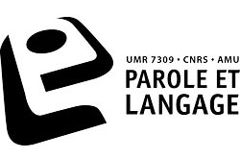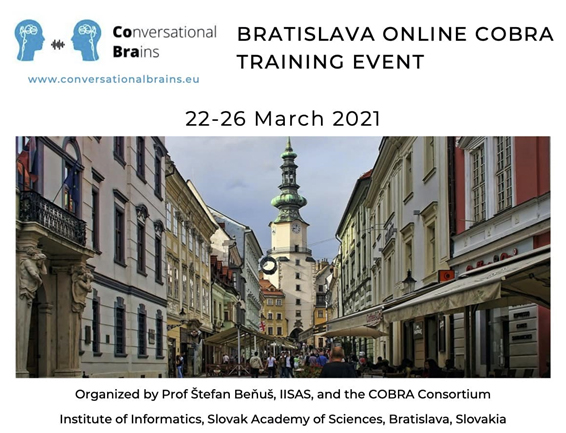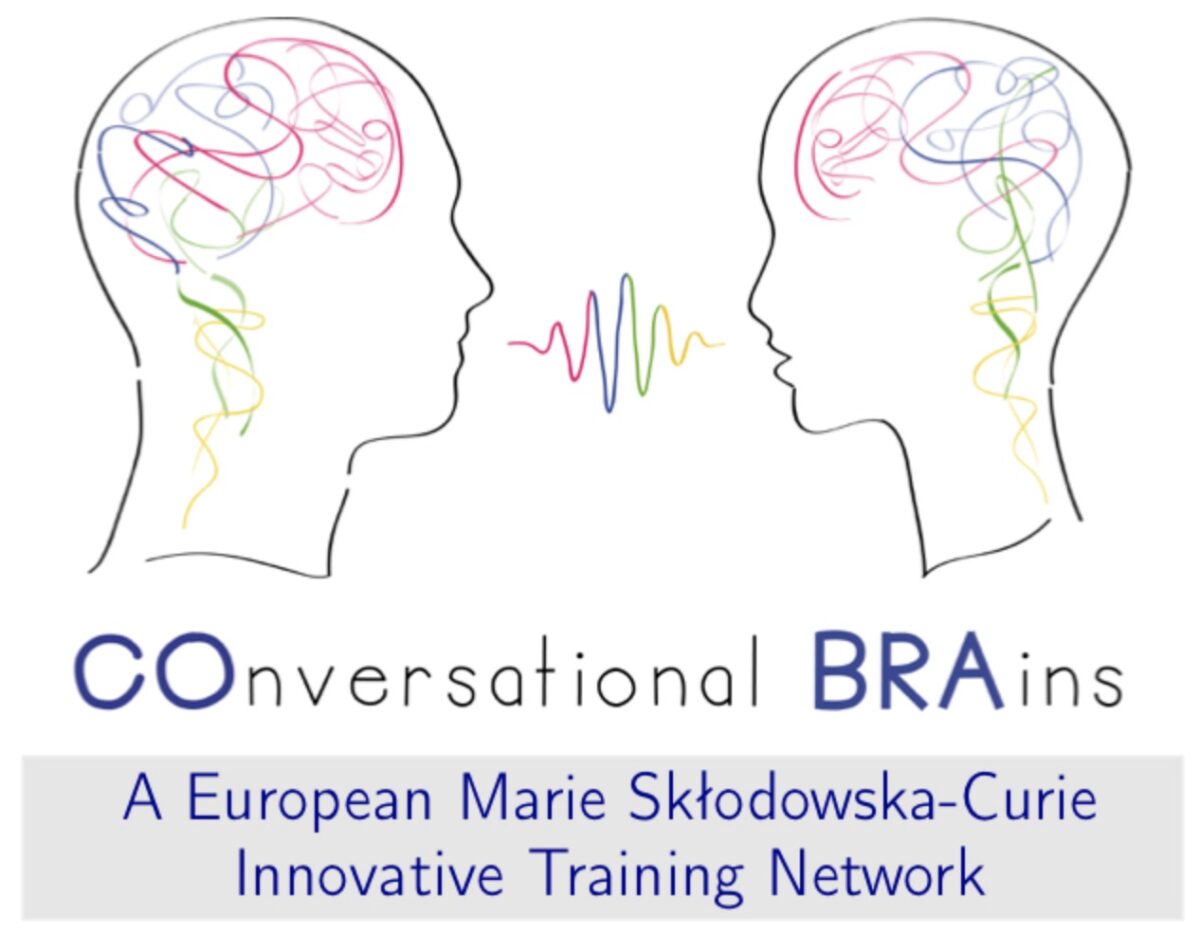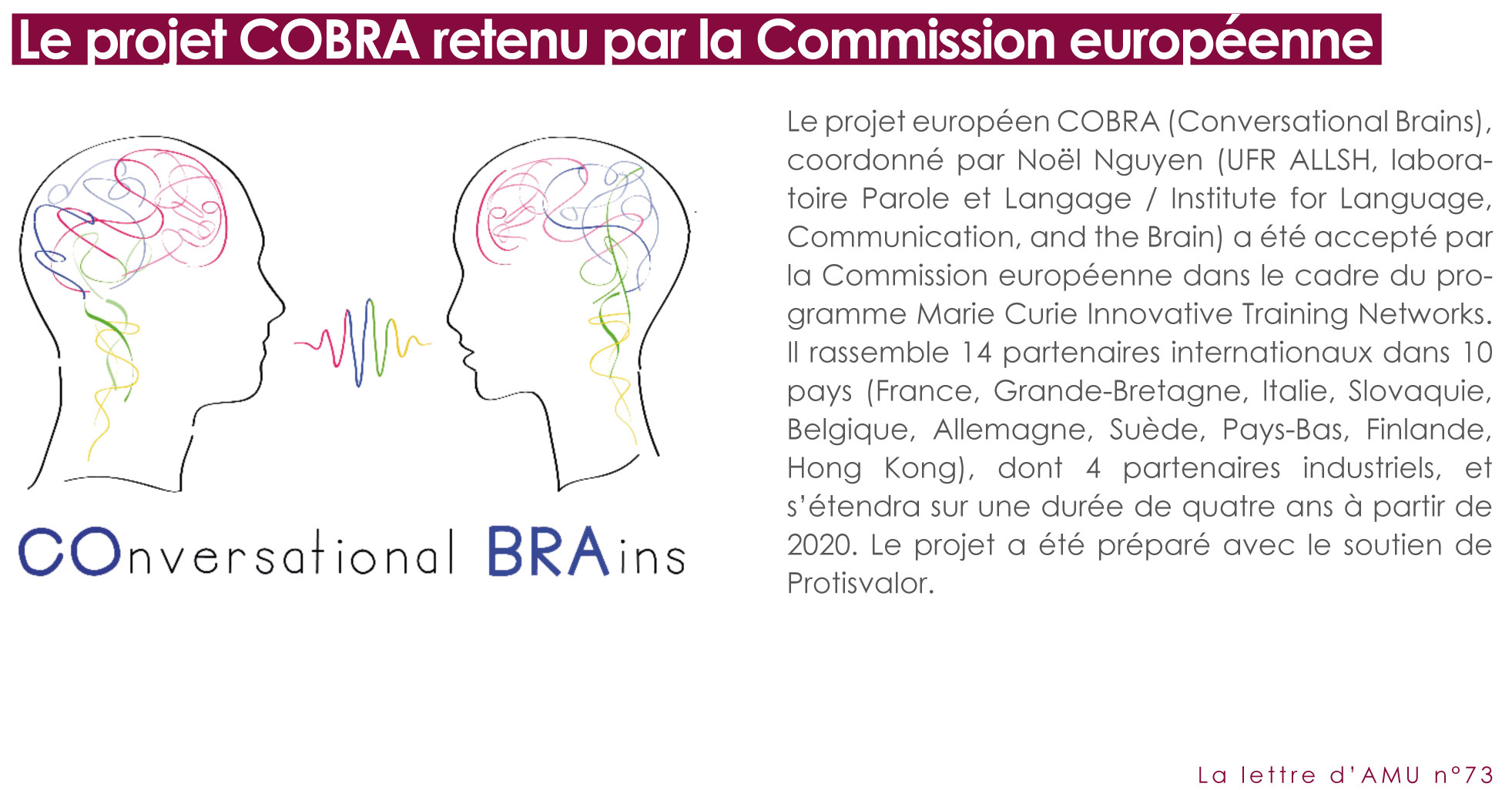A look back at the Bratislava Online Training Event organized by the European COBRA project
The European Conversational Brains (COBRA) project, funded by the European Commission for a period of four years (2020-2024), organized its first training event last week, from March 22 to 26. This event included a series of courses given by Susanne Fuchs (ZAS, Berlin), Peter Hagoort (MPI, Nijmegen), Martin Pickering (Univ Edinburgh) and Kristof Strijkers (LPL). COBRA's non-academic partners (DAVI, Furhat, Orange, ReadSpeaker) presented their artificial dialogue systems in a Show & Tell session. The doctoral students - including Emilia Kerr and Lena Huttner of the LPL - also gave a first glimpse of their progress, and that was a key moment of the week.
This event also made it possible to finalize the first version of the data management plan on OPIDoR, to announce the creation of a open data pool on Zenodo, and the setting up of an e-training platform on MoodleCloud, combined with another shared Jupyter-type platform for the training of doctoral students in the fields of statistics, calculation, and programming. Moreover, the doctoral students have opened a blog on the COBRA site, in which they will present their activities at regular intervals.
The week was thus extremely rich and intense, it offered everyone the opportunity to get to better know all the doctoral students and to strengthen ties within the network. Fortunately, the participants did not just work: Stefan Benus, the organizer of the event, invited all members to participate in an online police investigation, which took place in Bratislava. It was really exciting! 😉
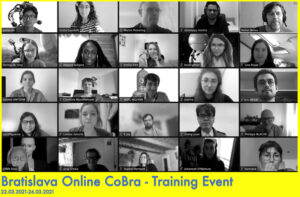
And the perspectives...
The next event will take place from May 17 to 21 and will be organized by the Aix-Marseille team. It will be preceded by an online seminar given to doctoral students entitled “How to give engaging scientific talks”. Doctoral students will be called upon to make an even stronger contribution than during the 1st event, and will notably have to carry out a hackathon on data processing. It is also planned to offer doctoral students training in statistics tailored to their needs and provided by Shravan Vasishth and Audrey Bürki (Univ Potsdam).
The next events will be organized by our partners in Edinburgh (second semester 2021) and Ferrara (first semester 2022).
More information:
Contact: Noël Nguyen (Project coordinator)
Website: www.conversationalbrains.eu
Twitter: @CobraNetwork
